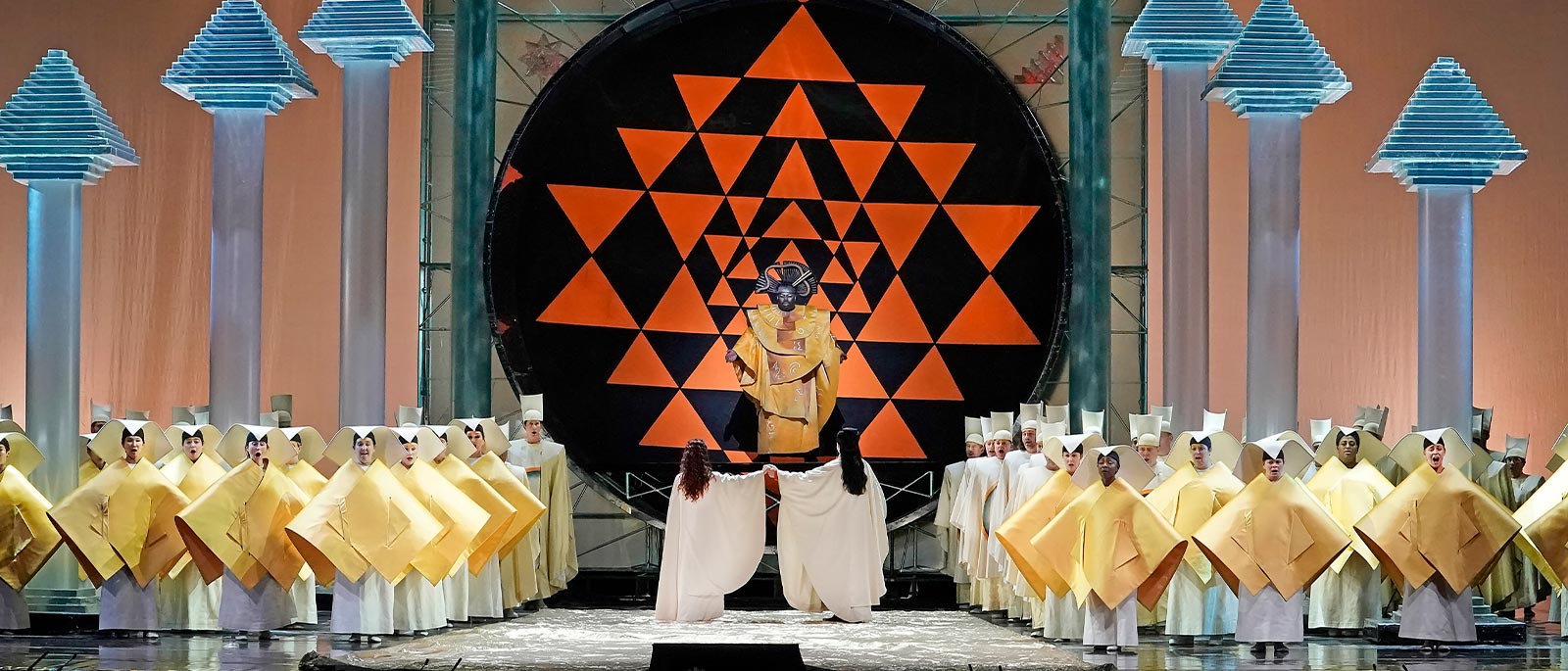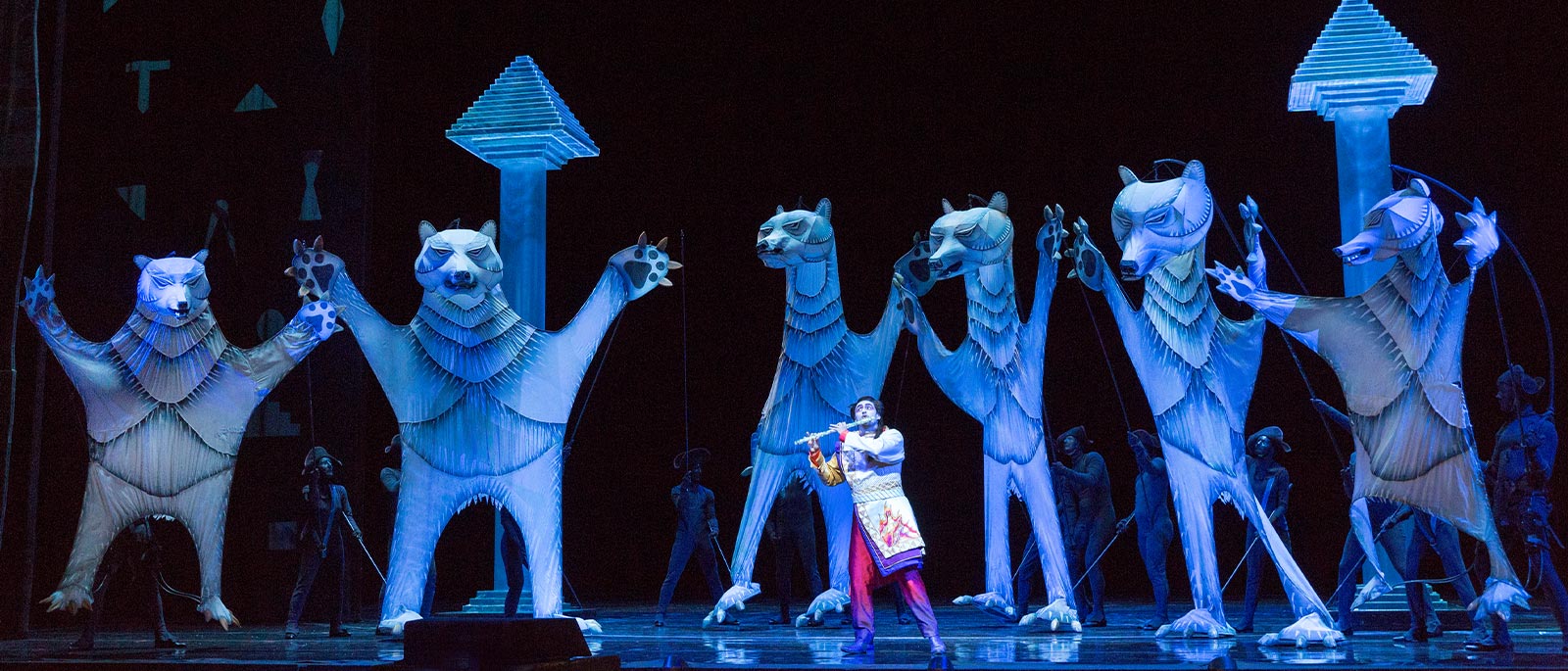
Wolfgang Amadeus Mozart
The Magic Flute—Holiday Presentation
This production ran: Dec 10 - Jan 5
This production is in the past.
Overview
The Met’s abridged, English-language version of Mozart’s magical fairy tale is a classic holiday treat for audiences of all ages. A cast of standouts comes together to bring the charming story and enchanting music to life, led by tenor Matthew Polenzani as the courageous Tamino and soprano Hera Hyesang Park as the virtuous Pamina. Rolando Villazón makes an exciting role debut as the lovable lout Papageno, alongside Kathryn Lewek as the fearsome Queen of the Night and Morris Robinson as her nemesis, the wise Sarastro. Jane Glover and Patrick Furrer share conducting duties.
Vaccines are now available for children ages 5–11, and fully vaccinated children are welcome at the Met two weeks after they have received their final dose. Photo ID for children under 12 will not be required as long as they are accompanied by parents/guardians with valid photo ID. Learn more
Holiday Family Festival: Explore illustrated synopses, coloring pages and activity sheets, and in-depth opera guides.
English adaptation by J. D. McClatchy
Abridged production of The Magic Flute a gift of The Andrew W. Mellon Foundation and Bill Rollnick and Nancy Ellison Rollnick
Original production of Die Zauberflöte a gift of Mr. and Mrs. Henry R. Kravis
Additional funding from John Van Meter, The Annenberg Foundation, Karen and Kevin Kennedy, Bill Rollnick and Nancy Ellison Rollnick, Mr. and Mrs. William R. Miller, Agnes Varis and Karl Leichtman, and Mr. and Mrs. Ezra K. Zilkha
Revival a gift of Rolex
Languages
Languages sung in The Magic Flute—Holiday Presentation
Sung In
English
Titles
Title languages displayed for The Magic Flute—Holiday Presentation
Met Titles In
- English
- German
- Spanish
Timeline
Timeline for the show, The Magic Flute—Holiday Presentation
Estimated Run Time
1 hrs 55 mins
-
House Opens
-
115 mins
-
Opera Ends
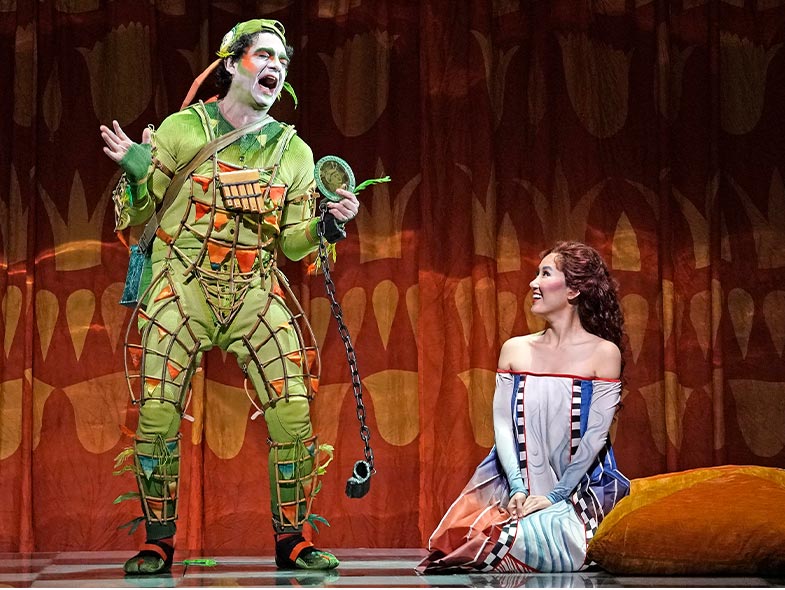
World Premiere: Freihaus-Theater auf der Wieden, Vienna, 1791. A sublime fairy tale that moves freely between earthy comedy and noble mysticism, The Magic Flute (Die Zauberflöte in the original German) was written for a theater located just outside Vienna with the clear intention of appealing to audiences from all walks of life. The story is told in a singspiel (“song-play”) format characterized by separate musical numbers connected by dialogue and stage activity, an excellent structure for navigating the diverse moods, ranging from solemn to lighthearted, of the story and score.
Creators
Wolfgang Amadeus Mozart (1756–1791) was the son of a Salzburg court musician who exhibited him as a musical prodigy throughout Europe. His achievements in opera, in terms of beauty, vocal challenge, and dramatic insight, remain unsurpassed. He died three months after the premiere of Die Zauberflöte, his last produced work for the stage. The remarkable Emanuel Schikaneder (1751–1812) was an actor, singer, theater manager, and friend of Mozart who wrote the opera’s libretto, staged the work, and sang the role of Papageno in the initial run.
PRODUCTION
Julie Taymor
Set DESIGNER
George Tsypin
LIGHTING DESIGNER
Donald Holder
PUPPET DESIGNERS
Julie Taymor and Michael Curry
CHOREOGRAPHER
Mark Dendy
ENGLISH ADAPTATION
J. D. McClatchy
Costume Designer
Julie Taymor
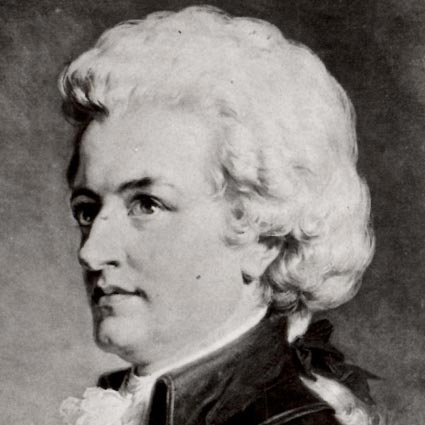
Composer
Wolfgang Amadeus Mozart
Setting
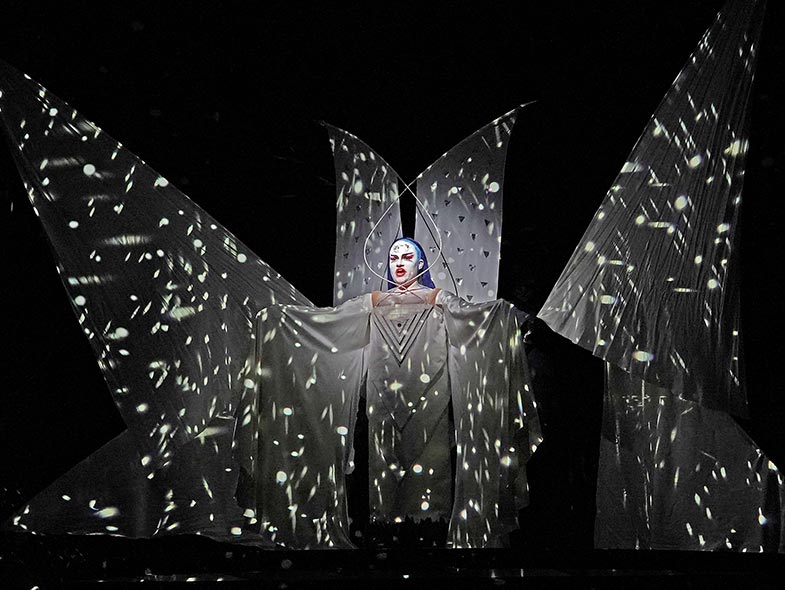
The libretto specifies Egypt as the location of the action. That country was traditionally regarded as the legendary birthplace of the Masonic fraternity, whose symbols and rituals populate this opera. Some productions include Egyptian motifs as an exotic nod to this idea, but most opt for a more generalized mythic ambience to convey the otherworldliness that the score and overall tone of the work call for.
Music
Mozart and his librettist, Emanuel Schikaneder, created The Magic Flute with an eye toward a popular audience, but the varied tone of the work requires singers who can specialize in several different musical genres. The baritone Papageno represents the comic and earthy, the tenor Tamino and the soprano Pamina display true love in its noblest forms, the bass Sarastro expresses the solemn and the transcendental, and the Queen of the Night provides explosive vocal fireworks.
